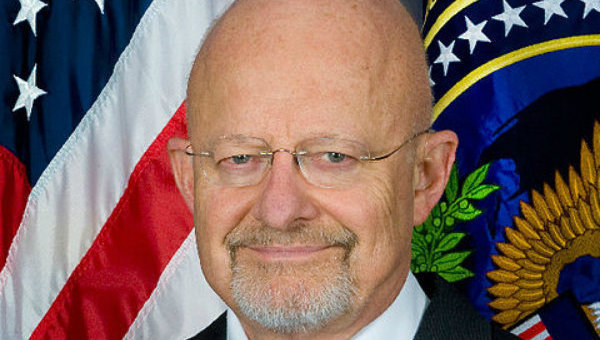MOSCOW, September 11 (RAPSI) - Director of US National Intelligence James Clapper declassified and released a number of documents Tuesday relating to “certain sensitive intelligence collection programs.”
Announcing the release of the documents Tuesday, Clapper explained, “Consistent with this directive, today I authorized the declassification and public release of a number of documents pertaining to the Government’s collection of bulk telephony metadata under Section 501 of the FISA, as amended by Section 215 of the USA PATRIOT Act.” Clapper noted in his statement that the documents had been properly classified initially, but that he had chosen to declassify them after having determined that doing so weighed more heavily in the public interest than refraining from doing so would to serve national security interests.
Notably, Clapper’s statement attributed the release of these documents to a directive issued in June by US President Barrack Obama.
The Electronic Frontier Foundation (EFF), a US-based digital rights advocacy group, begged to differ. In a statement released Tuesday, the organization asserted that the “hundreds of pages of documents related to the government's secret interpretation of Patriot Act Section 215 and the [National Security Agency’s (NSA)] (mis)use of its massive database of every American's phone records” were released due to the organization’s ongoing Freedom of Information Act (FOIA) lawsuit.
The statement went on to add, “First, intelligence officials said they were releasing this information in response to the presidential directive on transparency surrounding the NSA. That statement is misleading. They are releasing this information because a court ordered them to as part of EFF's Freedom of Information Act lawsuit, filed almost two years ago on the tenth anniversary of the Patriot Act.”
The Freedom of Information Act (FOIA) is a US federal law requiring government agencies to make certain types of information publicly accessible. Members of the public are able to file request forms with government departments and agencies, which in turn must either provide the information or prove that it cannot be released because it falls within the scope of a valid exception to the law, such as in the cases of classified or internal information.
Earlier in September, the EFF announced that the Justice Department had conceded in response to a judge’s order in the context of a FOIA lawsuit that it would release hundreds of pages of documents relating to the government’s interpretation of the Patriot Act, a US law enacted shortly after the terrorist attacks on September 11, 2001 with the aim of “[deterring] and [punishing] terrorist acts in the United States and around the world,” and “[enhancing] law enforcement investigatory tools, and for other purposes.”
The documents released Tuesday include Foreign Intelligence Surveillance Court (FISC) orders and opinions, FISC filings, a report by the Inspector General, and NSA documents.
Speaking about the documents, Clapper explained, “They describe certain compliance incidents that were discovered by NSA, reported to the FISC and the Congress, and resolved four years ago. They demonstrate that the Government has undertaken extraordinary measures to identify and correct mistakes that have occurred in implementing the bulk telephony metadata collection program – and to put systems and processes in place that seek to prevent such mistakes from occurring in the first place.”
Edward Snowden, 30, admitted to leaking a secret court order to the media in early June, according to which US telecom company Verizon was required to provide data from millions of customers to the US authorities for three months. He also claims an Internet scouring program code-named PRISM allowed the NSA and the FBI to tap into nine US Internet companies and to gather all kinds of information from users, including videos, emails, searches and images.
The EFF noted in its statement Tuesday that until Snowden began revealing such information a few months ago, the government had aggressively endeavored to avoid releasing such information. According to the statement: “The government argued releasing a single word of today's release would cause ‘serious and exceptionally grave damage to the national security of the United States.’”



